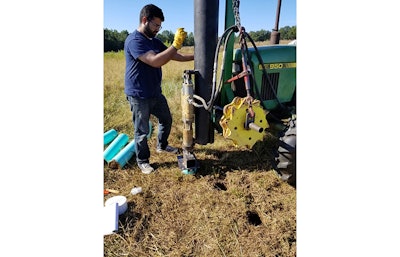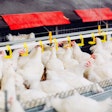
A research project at Auburn University wants to learn more about where heavy metals in poultry manure used as fertilizer go once they pass through the soil.
Poultry litter is a convenient and inexpensive fertilizer source for many farmers. Research has shown that poultry litter is just as effective as synthetic fertilizers when it comes to fertilizing crops like cotton.
"Poultry litter is inexpensive compared to synthetic fertilizer and it is an excellent source of various macro and micro nutrients for crops," said Jasmeet Lamba, assistant professor in the Auburn University College of Agriculture’s Department of Biosystems Engineering.
“Excessive and repeated application of poultry litter to same agricultural fields can result in build-up of heavy metals in soils. High concentration of heavy metals in soils can increase susceptibility for off-site transport of heavy metals from agricultural fields. Delivery of these heavy metals in excessive quantities to surface and ground water can results in water quality impairment."
How the research will be conducted
The researchers plan to use field data collection, laboratory experiments and modeling to measure how much of the heavy metals is lost as water leaches through the soil of agricultural fields. The software package, HYDRUS-1D, will be used to model water, heat and solute movement through the soil.
“We are trying to understand heavy metals transport processes in soils. Improved understanding of these processes will help us develop management practices to mitigate heavy metals delivery to surface and groundwater,” Lamba said. "We will use combination of lab, field and modeling approaches to elucidate heavy metals processes in soils."
Better management practices
The researchers ultimately hope the project will help them develop a set of management practices that prevent the heavy metal loss associated with the use of poultry litter as fertilizer.
The project, which also includes researchers from the United States Department of Agriculture (USDA) National Soil Dynamics Laboratory and the University of California, Riverside, is funded by the USDA National Institute of Food and Agriculture (NIFA) under Sustainable Agroecosystems: Health, Functions, Processes and Management.
Like what you just read? Sign up now for free to receive the Poultry Future Newsletter.


















